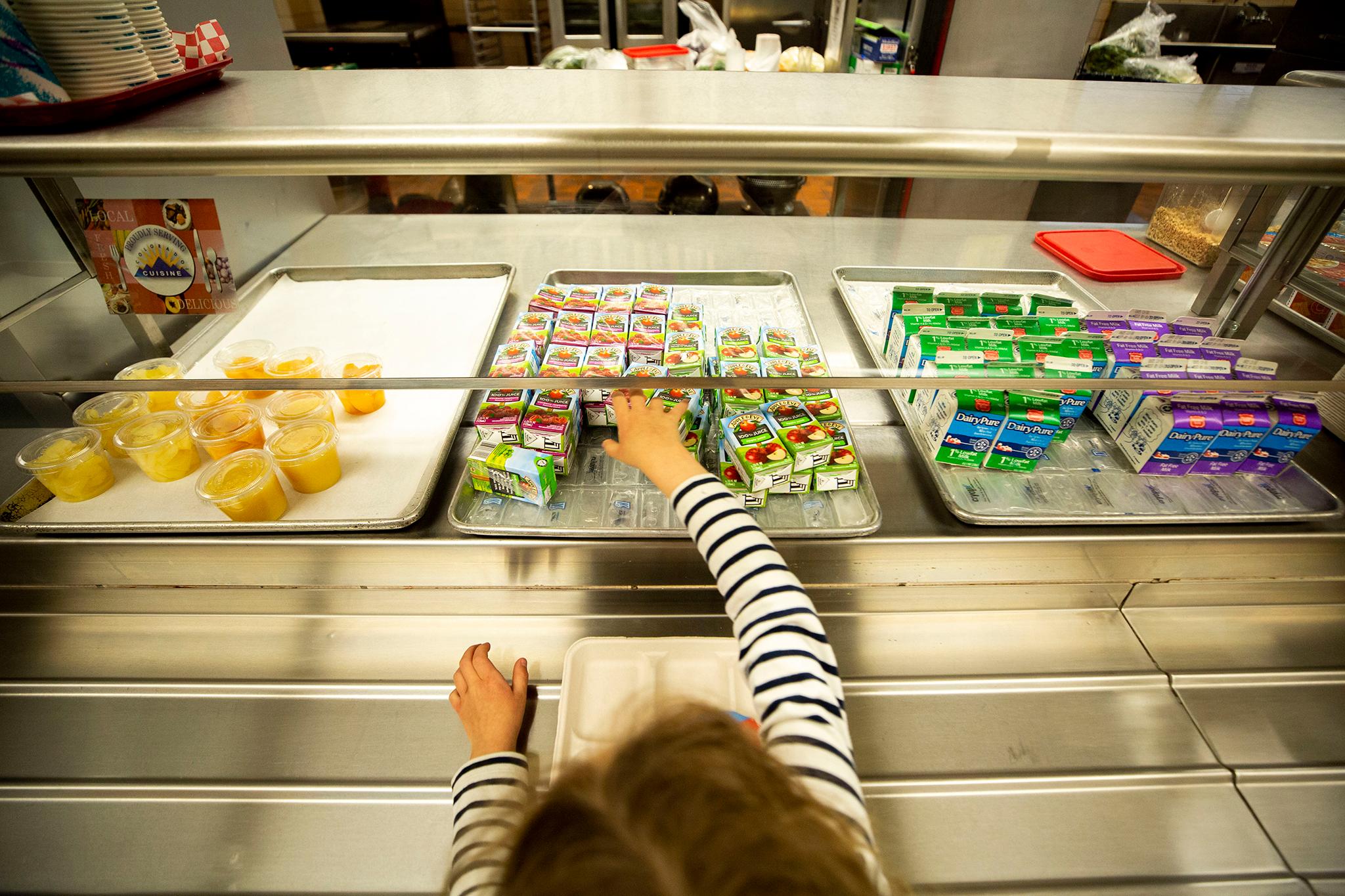
For the last two years, the federal government has funded free school lunches for public students, regardless of their income.
That pandemic program is set to expire this summer — but Democrats in the state legislature want it to continue in Colorado. A proposed statehouse bill would dedicate tens of millions of dollars for universal free school lunches starting in 2024.
“When you don’t have to focus on your food insecurity, when you don’t have to focus on where your next meal is coming from, because you know your school … is going to make sure you have a free and healthy meal — it helps everybody,” said Sen. Rhonda Fields, a Democrat who is sponsoring the bill, earlier this month.
Under SB22-087, the state government would pay for local districts to provide free meals for hundreds of thousands students above the federal cutoff for free lunches. The federal government would continue funding meals for lower-income students.
A staff analysis estimated the program would cost the state $119 million in its first year. But the sponsors have requested a new analysis with more specific data, which advocates believe could lower the cost below $100 million.
Advocates argue that providing universal free lunch means better nutrition, and potentially better financial and academic outcomes, for more students. And they say if no students pay for lunch, it will take away negative associations that makes some families hesitant to accept free lunches.
“In our district we’ve seen an increase of participation at lunch of almost 25 percent,” with universal free meals, said Danielle Bock, director of nutrition services for the Greeley-Evans School District. She was part of a delegation that went to Washington to ask federal lawmakers to extend their universal meal program. (That appears unlikely to happen.)
If the federal pandemic program expires without a state alternative in place, families will again have to submit eligibility applications to qualify for free lunches. The traditional program covers families living at 185 percent of poverty or lower. That’s approximately $42,000 a year for a family of four. Bock said many families who earn more than that still struggle to afford enough healthy food.
Even if the state law is passed, it will not be in effect until the 2023-24 school year, meaning that families may still face a year without universal free meals after the federal program expires this summer.
“We know that these are families on the bubble of ‘Can they provide a school meal to send their kids or can they pay the utility bill?’” Bock said.
The proposal passed the Senate Education committee on a 5-2 vote Thursday. Even if it is passed this session, it may not go into effect until 2024, two years after the federal program expires.
During the committee hearing, the proposal drew cost concerns from some lawmakers.
Sen. Paul Lundeen, a Republican who voted against the bill, said that while he supported the general idea, he was concerned the state would be spending heavily on meals for families that don’t need help.
Sen. Jeff Bridges, a Democrat who voted for the proposal, acknowledged those financial concerns.
“It is an ongoing cost … to the general fund,” Bridges said, adding that the lunch program could be seen as competing with more general education spending.
Jefferson County’s school nutrition director, Beth Wallace, who is also president of the School Nutrition Association, said the loss of universal free meals will cause students to go hungry and leave school meal programs in financial peril.
“Schools will be unable to sustain salaries needed to staff our kitchens or afford the fresh fruits and vegetables we want to serve our students each day. We will undoubtedly see mounting meal program losses that cut into funds for teachers, textbooks and technology to support learning,” Wallace said in a written statement.
Prior to the pandemic, Bock said approximately 120 of Colorado’s 178 districts had to use general funds to cover the cost of their food service programs. The new pandemic-related federal funds allowed districts to be reimbursed at a higher rate as they fed more children.
The measure is sponsored by Democratic Sens. Rhonda Fields and Brittany Pettersen, as well as Reps. Serena Gonzales-Gutierrez and Dafna Michaelson Jenet.
If the bill passes, Colorado will join California and Maine among the states that plan to continue universal free lunch on their own, The Conversation reported.








